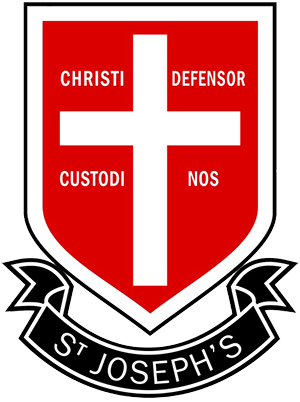Curriculum
Religion, Philosophy & Ethics
Intent
Bringing students to a personal knowledge and understanding of God, through the experience of Christ.
YEAR 7
Year 7 begin their R.E. journey by examining the significance of the Creation story and its similarities with scientific theories. This is crucial foundational knowledge which enables them to understand why Jesus' incarnation was necessary, and what it means for us as Christians today in terms of sacramental life. Having acquired a good understanding of the Eucharist, pupils can now identify the differences between Catholicism and other Christian denominations in how they conduct this practice.
YEAR 8
Now that Year 8 pupils have knowledge of the Creation story, they can now understand key concepts such as Original Sin and the Fall from Grace. This can then be applied to prophecies from the Old Testament, as well as teachings of John the Baptist, who provides us with the means of removing Original Sin. Through studying Mark's Gospel in chronological order, pupils can truly understand Mark's emphasis on sacrifice. Pupils can then apply these teachings to their own lives today.
YEAR 9
Now that they understand Catholicism, we bring Protestantism into the syllabus. We begin the year by teaching about the Church’s hierarchy and why it split. Different Christian denominations have different opinions about how to correctly approach controversial issues such as Abortion and Euthanasia. So the reasons for their views must be understand before we progress to ethical debates and their different attitudes towards men and women. We then examine scientific interpretations of creation before embarking on examining Jesus restoring creation in Mark’s Gospel. They finish the year by learning how these values are portrayed in film.
YEAR 10
Year 10 spend the year studying the Catholic Christianity GCSE syllabus. They begin with Creation and examine how Adam and Eve broke our relationship with God, before looking at Incarnation and how Jesus restored our relationship with God. The three parts of God can then be investigated in the Triune God unit, and how they make Redemption possible. We then teach how the Church plays a leading role in this Redemption, before finishing the year with beliefs and customs surrounding life after death.
YEAR 11
Now that they know the teachings and beliefs of Christians, Year 11 can now apply these to controversial ethical topics. They begin by looking at the role that religion plays in relationships and family, debating whether or not this approach is appropriate. They then apply biblical verses and teachings to examples of conflict, as well as human rights and social justice. The remainder of the year before the GCSE exams is dedicated to revising the more common areas of weakness from the previous two years.
A-LEVEL PHILOSOPHY AND ETHICS
YEAR 12
Year 12 begin A Level Philosophy by learning about two of the oldest philosophers: Plato and Aristotle. They then apply their beliefs to the Soul, Body and Mind, before progressing onto more modern philosophers and examining their views on the existence of God. They argue whether certain religious experiences prove God’s existence, before finishing the AS course by considering why an all-loving, all-powerful God would allow evil into the world. This leads into the Developments in Christian Thought course, which begins with Augustine’s teachings on human nature, having just studied his theodicy of the problem of evil. They then look at death and the afterlife.
In Ethics, Year 12 learn about the four normative ethical theories, before applying them to Euthanasia and Business Ethics. This leads into the other half of Developments in Christian Thought, where we consider the best way to apply Christian teachings to case studies such as Nazi Germany during World War II.
YEAR 13
Now that the VI Form can debate whether or not God exists in Philosophy, they can now argue whether or not there is a meaningful way to discuss God. They will simultaneously study Meta-Ethics; where they consider what we mean when we use the words “good” and “bad”. They finish the course by examining God’s attributes and determining whether or not they are contradictory.
They learn about Freud and Aquinas’ views on Conscience, before continuing to apply the normative ethical theories to Sexual Ethics.
Year 13 finish the course by exploring A2 Developments in Christian Thought. Whether religion can function in society and whether or not it can combine with Marxism.
CAREERS
For information on careers in Religious Education please see the below document:
Careers in Religious Education
CONTACT US
For information regarding Religious Education please contact the following:
- Mr Thomas Ojakovoh (Head of Religious Education) - t.ojakovoh@st-josephs.slough.sch.uk
